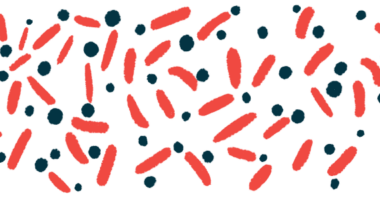Preclinical Data Support GeNeuro Antibody for Treating Sporadic ALS

New early clinical study results support the potential of GN-K01, an investigational antibody being developed by GeNeuro, as a treatment for amyotrophic lateral sclerosis (ALS). The therapy may enter clinical trials as early as 2022, according to the company.
The antibody targets a viral protein, called HERV-K ENV, that was found at high levels in the cerebrospinal fluid or CSF — the liquid surrounding the brain and spinal cord — of sporadic ALS patients.
It is now ready to enter manufacturing according to good manufacturing practice (GMP) standards — set to ensure that batches of a medicine are produced with consistent high quality.
“This novel preclinical data holds promises that neutralizing HERV-K ENV with GeNeuro’s antibody could become a treatment option for patients with sporadic ALS,” Avindra Nath, MD, clinical director of the National Institute of Neurological Disorders and Stroke (NINDS), said in a press release.
Nath shared the results at the American Neurological Association (ANA) 2021 Annual Meeting, held virtually Oct. 17-19. His poster was titled “Neurotoxic Properties of Human Endogenous Retrovirus-K Envelope Protein and Detection in Cerebrospinal Fluid of Patients with Amyotrophic Lateral Sclerosis” (abstract 292).
HERV-K ENV is a protein found in the envelope, or the protective capsule involving a virus, of the family of human endogenous retroviruses (HERVs). This protein is believed to be a potential factor in ALS development, since its expression in cells and animal models lead to nerve cell death and to behavioral and neuromuscular symptoms that resemble ALS.
GN-K01 is an antibody designed to neutralize the activity of HERV-K ENV, thereby reducing nerve cell death and slowing disease progression. Under a 2017 partnership with GeNeuro, the therapy is being tested in cellular and animal models of ALS by Nath and his group at NINDS, a part of the National Institutes of Health (NIH).
In addition to confirming that the HERV-K ENV protein is found in the CSF of people with sporadic ALS, the researchers found that the protein induces neuronal cell death, retraction of neurites — projections used by nerve cells to communicate with each other — and reduces the firing of nerve cells.
However, these neurotoxic properties could be rescued with GeNeuro’s antibody, suggesting it could be used as a potential treatment for ALS.
Of note, the researchers also screened for chemical compounds that could block HERV-K ENV-related neurotoxicity, and found three classes with protective effects: inhibitors of the glycogen synthase kinase-3 (GSK-3) protein, activators of the retinoic acid receptor, and certain flavonoids.
“Our pre-clinical work on ALS has evidenced that HERV-K ENV mediates toxicity via three interlinked pathways, leading to neuronal cell death. GeNeuro’s GN-K01 antibody has demonstrated to neutralize this effect in pre-clinical in vivo and in vitro models,” said Nath.
For its part, GeNeuro said it was “fortunate” to have this work from the NINDS team.
“These results confirm the potentially key role of HERV-K ENV in ALS and the potential of GeNeuro’s new antibody in [ALS],” said Jesús Martin-Garcia, CEO of GeNeuro. “We will now seek partnerships to bring this product to patients as rapidly as possible.”







